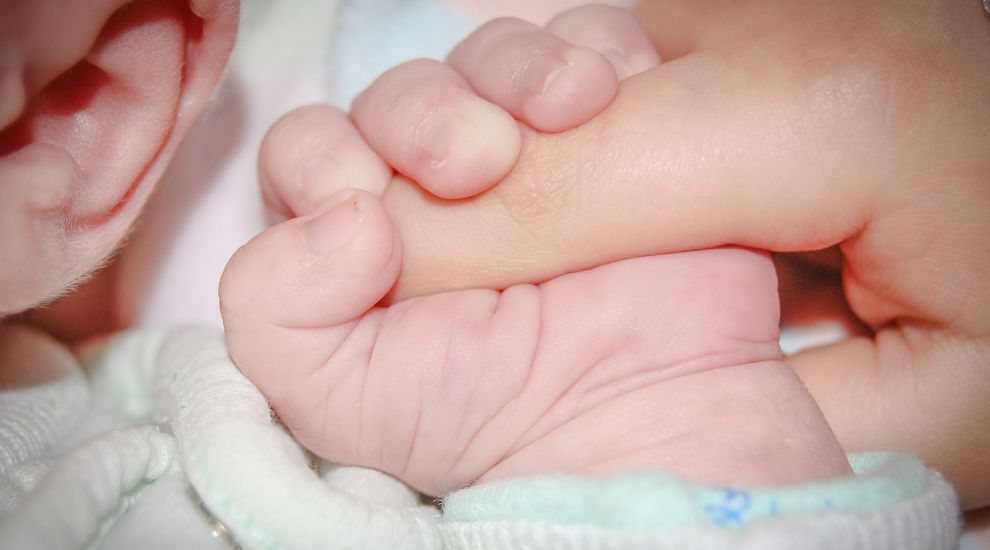

Jersey's Royal Court has refused to grant a teenage mum more time to appeal a care order, and an order freeing her 14-month-old baby for adoption, following concerns any delay would prevent the adoptive parents from bonding with the baby.
Royal Court Commissioner Julian Clyde-Smith, sitting with Jurats Collette Crill and Rozanne Thomas, made a final care order and an order freeing the child for adoption in December.
The mother appealed against both orders, which were made when the baby was 14 months old, on 20 March with the help of her parents. Royal Court Commissioner Sir Michael Birt, who heard the appeal, noted that both the action against the final care order, and the freeing order, were filed seven weeks and over a month out of time.
In his judgment, Sir Michael explained the orders had been prompted by concerns about “the mental wellbeing of the mother and, to a lesser extent, the father, the parents’ capacity to regulate and contain their emotions, domestic violence and conflict in the parents’ relationship and the absence of suitable extended family support.” The mother got pregnant when she was 15 and the pregnancy was planned by her and the father, who was then aged 17.
The Court initially concluded that it was in the best interests of the child that he should be adopted.
Pictured: The Royal Court made a final care order and an order freeing the child for adoption in December.
In her notice of appeal, the mother explained that because of her age, it had been “hard for her to appreciate fully and immediately the long-term implications of all the proposals and decisions which have been made for the child.” She said she had been thinking about the child constantly since the Court’s decision that he should be adopted and grow up in a different family, “not knowing [the mum] or anyone else in his natural family.”
The mum said: “I cannot accept this, or agree that this is the best thing for [the child]. I feel that, with some help, I am capable of being his mother, of looking after him well and providing for all his needs.
“Since the Court’s decision, I have changed a lot. This is a result of thinking so much about [the child] and the implications of the Court’s decision, but also because I am growing up and learning from all that has happened to me. I was only 15 when I had [the child]. I am only 17 now, but I have grown up so much over the last year; I am not the same person who was assessed and found not to be capable of being his mother.”
Sir Michael concluded that the mum shouldn’t be granted an extension of time. He said: “Whilst I appreciate the mother’s youth and the magnitude of the decision that her child should be freed for adoption, she was legally advised throughout and I do not consider that there is any powerful explanation for the failure to appeal in time. She knew the decision on 11th December and she knew of the reasons for that decision from the judgment issued on 19th January. I do not consider that she has provided a good reason for her failure to appeal within 28 days of the judgment.”
He also noted there was no “realistic prospects of success” as the mother was only able to offer her belief as evidence that the child should live with her. “Whilst there can be no doubt about her love for her child and her wish to care for him, there is simply no basis in the material before me upon which the Court of Appeal could be invited realistically to overturn the careful judgment of the Royal Court.
"Furthermore, now that the child has been placed with potential adopters, the prospects of a successful appeal are even further reduced. In order to succeed, the mother would have to persuade the Court of Appeal to remove the child from the prospective adopters, where he could be expected to have begun to develop bonds of attachment, and place the child back with the mother, thereby delaying the whole process of the child settling in a stable placement.”
Finally, he said that if extended time for the mother to make an appeal it would cause “substantial prejudice to the welfare of the child” who had just been placed with the prospective adopters. “If an extension of time were granted, the appeal could not realistically come on for hearing until the July sitting. This would mean that, for the period until then, the whole process would be thrown into uncertainty. In those circumstances the prospective adopters would undoubtedly find it hard to commit fully to the process of loving and bonding with the child for fear that he might be removed if the appeal were to be successful.”
Comments
Comments on this story express the views of the commentator only, not Bailiwick Publishing. We are unable to guarantee the accuracy of any of those comments.